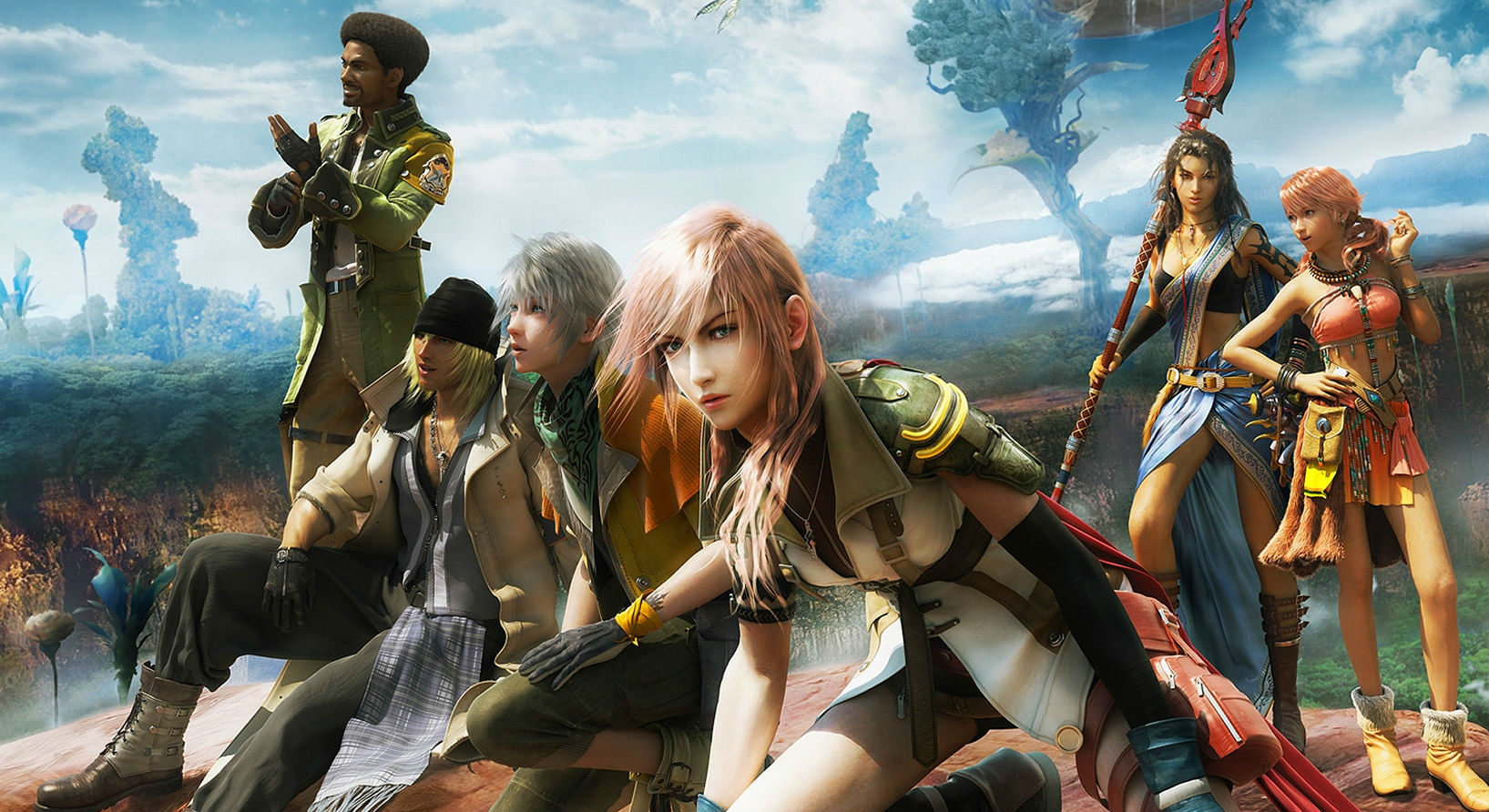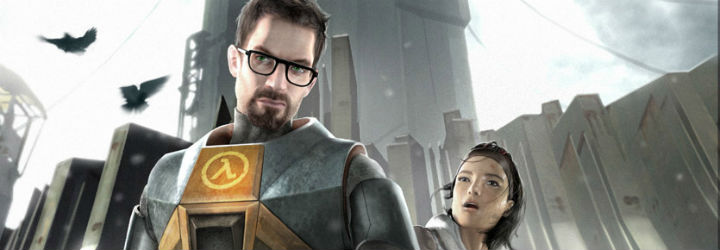
THE LOWS
Samuel Roberts: Thirteenth time is not the charm
I’ll have a full review next week, but for now let’s say I’m pretty damn disappointed by the port of Final Fantasy XIII on PC. With no video options whatsoever aside from windowed/full screen mode (woo!) and locked 720p framerate, this shoddy port can sometimes chug to below 20 fps on a mid-ranged PC when there’s four enemy units on-screen (usually running at 30). We’re not talking about a systemic open world with complex AI systems, here—this is one of FFXIII’s many shiny corridors, from a game that was created for nine year-old hardware. Once I’m done reviewing it, I’ll put on Durante’s fix—but it’s disappointing that such a high-profile entry in the series has just been dropped onto Steam with little fanfare or pride in the way it’s presented.
Tom Senior: Finality
Damnit Sam, I was going to do Final Fantasy XIII, but for a different reason. I've always valued the FF games' tendency to bring a new world, new characters and a new combat system to every entry in the series. It's a hugely risky thing to with games that are capable of spending money faster than an NPC trapped in the Gold Saucer. The effects of all that cash are apparent in the lavish cutscenes and meticulous skyboxes of XIII, but after six hours of endless auto-attacking and patronising tutorial prompts, I'm convinced the game thinks I'm a complete idiot.
The paradigm shift system is designed to let you control the strategic flow of the battle without having to quickly navigate menus to issue individual orders, but it still makes me press the auto-attack button once every 30 seconds, and the monsters I'm slaughtering don't offer enough resistance to make any of that effort worthwhile. I'm told it "opens up after 30 hours". There's no way I'm going to make it that far.

Tyler Wilde: I don’t even want Half-Life 3 anymore
Keep up to date with the most important stories and the best deals, as picked by the PC Gamer team.
OK, I kind of still do want Half-Life 3—I mean, I’ll play it and all—but this silly campaign to pressure Valve into talking about it makes me cringe. It’s been fun to make ‘HL3 confirmed’ jokes, but we’ve been doing it for so long I’m afraid we don’t even know why we want it anymore. Yeah, Half-Life 2 was great, but let’s not pretend it’s the end all of game design. Finding a vent to bypass an obstacle isn’t brilliant, and while I still like the characters and universe, I don’t look back on it as one of my favorite sci-fi stories ever. It wouldn’t kill me to never find out what happens to crowbar-man.
I respect the achievement Half-Life 2 was, and I respect Valve for making it. I’m looking forward to celebrating its 10 year anniversary next month, and if Valve announced HL3 along with it I’d be just as excited as anyone. It would be huge. But I’m not going to fret about it, and if they instead announced a brand new game that doesn’t carry the burden of HL2’s weight, that’d be great, too. We don’t need Half-Life 3 to be happy.
Evan Lahti: Hating Hatred
Until the reveal trailer for Hatred [NSFW] went up on Thursday, it had been a blissfully long time since we’d had a game whose self-stated purpose for existing was to upset people and get as much attention in the process. Hatred’s unfortunate premise, as explained by Polish studio Destructive Creations, is that you’ll get to “Fight against law enforcement and take a journey into the antagonist's hateful mind.” What it doesn’t mention in words, seemingly because the developers are too uncomfortable themselves to write it down, is that you’ll brutally and vividly execute as many innocent people as you can along the way.
Why would I want to? Why would anyone want to play a game that does that? Hatred has a right to exist, obviously, and I’d say that we should all want more games that explore controversial issues, potentially up to and including atrocities. But there’s nothing about Hatred that convinces me that its tediously dark, straight-faced, and gleeful portrayal of mass murder won’t drown out anything it might have to say about violence or perceived political correctness.
Pre-empting criticism, Destructive Creations writes on its website: “The question you may ask is: why do they do this? These days, when a lot of games are heading to be polite, colorful, politically correct and trying to be some kind of higher art, rather than just an entertainment – we wanted to create something against trends. Something different, something that could give the player a pure, gaming pleasure.”
I don’t think there’s anything pleasant about playing a game like that. Beyond that, what trend are they referencing? Between Spec Ops: The Line, Hotline Miami, and conventional horror fare like Dead Space, Killing Floor, The Evil Within, and even the way kidnapping plays out in DayZ, we’ve got plenty of games that feature violence in a nuanced way. Stuff like Postal, though terribly designed, was playful—it was also created when games had a more limited capacity to simulate violence with fidelity. Hatred, on the other hand, plays up its use of Unreal 4 and PhysX to accurately represent horrific murder. If Destructive wants to make a game that explores hyperviolence as a criticism of censorship, taking the most extreme form possible doesn’t seem like an effective way to achieve that.

Phil Savage: I will do anything for love, but I won't do Gat
I'm looking forward to Gat Out of Hell, and the new trailer only reignites my anticipation. Even better, it's being released a week earlier. Everything about it is good. Almost.
I still don't care about Johnny Gat. My love of the series started with The Third, which, for various plot reasons, he was barely in. He wasn't among the characters I got to know—and, more than anything, Saints Row is a comedy about its characters. Subsequently, I never really understood the idolisation of him in Saints Row 4. He's good at killing people is he? Big deal, we're all good at killing people. Now, in this next game, he's the main character.
Fine, I guess, but I've grown attached to The Boss. More importantly, I like the idea of The Boss—a malleable figure with an amazing degree of customisation. Gat's an established character with an established look, and already that takes away some of the magic.
Tim Clark: This is a low
Most weeks I use this column to moan about some minor annoyance in PC gaming. Like the fact a computer with three GTX 980s is still crashing two turns into my Hearthstone ladder matches. I’m also intensely aware that at this point writing anything about GamerGate, and the grim surrounding fallout, is like opening Lemarchand’s box and hoping for the best, but equally I can’t look back over the week without addressing how serious this has all become.
The events which have taken the topic onto the front pages of national news sites are my low. As a team we’ve talked about the subject at length, and I struggle to recall anything in gaming culture that’s been quite so collectively depressing. Not because there shouldn’t be discussion about how games are made and covered—of course there should, and I’m yet to see anyone sensible suggest otherwise. However the manner and tone of much (but not all) of the current discussion that’s being corralled inside that shifting, nebulous hashtag, is so hostile, aggressive, and at the outer limits actually criminal, that it’s hard to know how to begin engaging with it productively.
I want to think that what we choose to cover, and how we go about it, speaks for what PC Gamer stands for. But I also want to add more specifically that the team, past and present, has always championed inclusivity and the limitless possibilities of gaming. That means embracing the idea that games can and should be made and enjoyed by as wide a group of people as possible. Logically that will only increase the likelihood of more brilliant, weird, exciting games blinking into existence. Everyone should feel welcome and everyone should feel safe. I hope that position is already understood, because it seems so entirely obvious. If it isn’t then we’ll just have to work harder to keep showing why it matters.
PC Gamer is the global authority on PC games—starting in 1993 with the magazine, and then in 2010 with this website you're currently reading. We have writers across the US, Canada, UK and Australia, who you can read about here.


